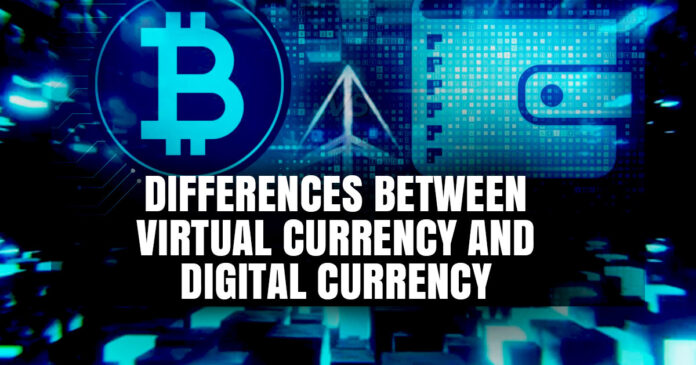Many crypto investors do not know the differences between virtual currency and digital currency. Indeed, investors use both these terms interchangeably.
Yet, they’re unaware of its subtle differences. Today, we’ll be going through what sets these two apart from each other. To do this, we’ll be using the flow chart as shown below.
Defining Virtual Currency and Digital Currency
Before we begin, let us define what each currency above means. In short,
- A virtual currency is “a digital representation of value only available in electronic form”.
- A digital currency is “a form of currency that is available only in digital or electronic form”.
The differences between virtual currencies and digital currencies 👇 pic.twitter.com/k892i434o6
— Digital Asset Summit 2024 (@blockworksDAS) November 7, 2023
So one’s a digital representation of value. And another, a form of currency? They’re both pretty similar, aren’t they? Both of the above definitions don’t help us much. We still do not understand virtual currency and digital currency. Hence, we need to look at their differences.
Difference #1 – Legal Tender Status
The first difference between virtual currency and digital currency is its legal tender status. Legal tender refers to coins or notes. On top of that, it is regulated by law that it can be accepted for payments.
In this case, virtual currency has no legal tender status. On the contrary, the digital currency does. A good example here of virtual currency could be “gold” in an online game. It has value, but no one will accept it as payment in the real world.
Difference #2 – Convertibility
Another difference between virtual currency and digital currency is convertibility. Simply put, this refers to the ability of one currency to convert to another. Here, virtual currency can be either convertible or non-convertible. However, digital currency is strictly only convertible.
Let’s take a look at some examples. For virtual currency, digital gift cards are a good example. You can’t readily convert it to any other currency. But, it has value and you can use it at selected stores. For digital currency, USD fiat is a good example. Any money changer, bank, or even certain online apps can convert USD to any fiat currency of your choice.
Here’s how the @Vans experience on Roblox connected them with 100 MILLION consumers
In Q1 2021, users spent more than $652 millions buying digital goods with Roblox’s virtual currency, and Vans capitalised on this growing appetite to create a new revenue source for the brand.… pic.twitter.com/Z0w0OYHpvE
— Metakey (@themetakey) November 21, 2023
Difference #3 – Fungibility
The next difference between virtual currency and digital currency is fungibility. In a nutshell, this means how interchangeable an asset is with another of a similar type. For instance, USD fiat is fungible, since everyone has it and they’re of similar value. On the other hand, NFTs are not fungible. Each NFT is unique and cannot be replicated. Furthermore, each NFT’s value is different and varies as well. Hence, it is not easy to exchange them with other NFTs.
For this comparison, virtual currency can be fungible or non-fungible. But, digital currency can only be fungible. In the crypto space, NFTs like BAYC, Azuki, etc are virtual currencies. Stablecoins like $USDT or $USDC are termed digital currency instead.
Difference #4 – Examples in Crypto Context
Let us look at some examples in the crypto context. What classifies as virtual currency or digital currency?
Well, virtual currency includes:
- NFTs.
- Bitcoin.
- Fungible altcoins like $ETH or $BNB.
- Distributed Ledger Technology (DLT) coins like $HBAR or $IOTA.
On the other hand, digital currency includes:
- Bitcoin (in El Salvador only). This is because they consider $BTC as legal tender.
- Stablecoins that are pegged. These include $USDT, $USDC or other coins that peg itself to other items of value.
Conclusion
We hope we’ve summed up the differences between virtual currency and digital currency for you. Now, you can be just a little bit more accurate in describing crypto assets! Who knows, you might be able to impress some crypto professionals too!
Disclaimer
The information discussed by Altcoin Buzz is not financial advice. This is for educational, entertainment, and informational purposes only. Any information or strategies are thoughts and opinions relevant to the accepted levels of risk tolerance of the writer/reviewers and their risk tolerance may be different than yours. We are not responsible for any losses that you may incur as a result of any investments directly or indirectly related to the information provided. Bitcoin and other cryptocurrencies are high-risk investments so please do your due diligence. Copyright Altcoin Buzz Pte Ltd.





























